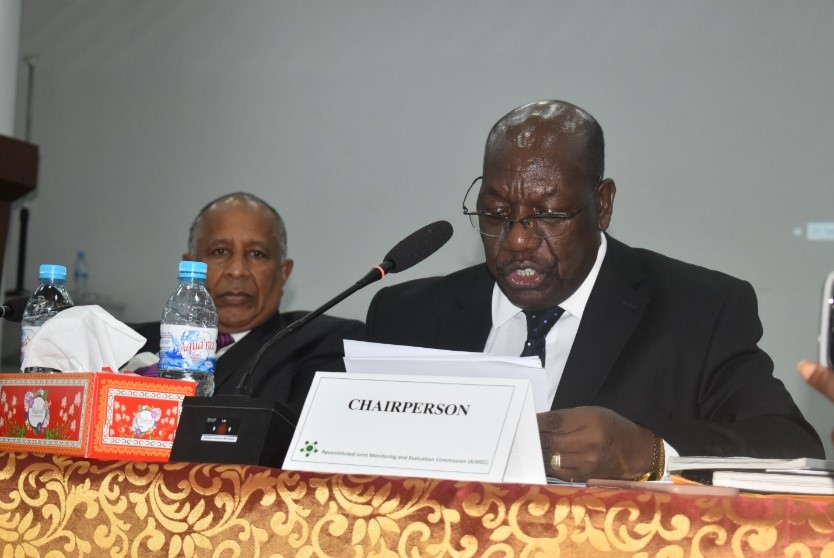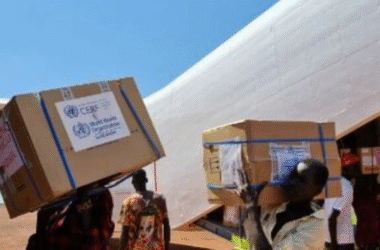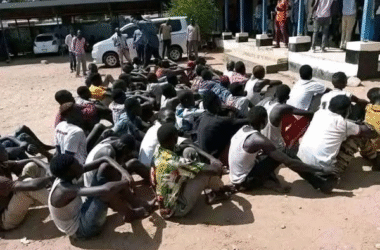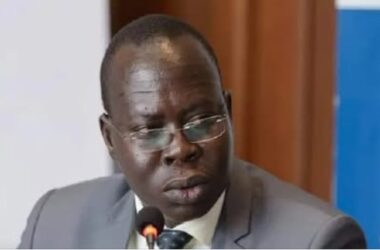As we come to the end of the year in which the Transitional Period of the Revitalised Agreement on the Resolution of the Conflict in the Republic of South Sudan (R-ARCSS) was extended due to slow progress in implementation, we enter into the holiday season following a period of high level of diplomatic intensity for the South Sudan peace process.
The general assessment is that there is much good will and determination in the region and beyond for South Sudan to make a success of this Peace Agreement, despite all the challenges. As I told the 25th RJMEC Plenary on 14 December 2022, it is incumbent upon the Revitalised Transitional Government of National Unity (RTGoNU) to match that level of determination in the pace of implementation of the Roadmap.
The recent few weeks have seen many meetings at the top level. On 30 November 2022, the 48th Ordinary Session of the IGAD Council of Ministers in Khartoum, Sudan, and the 1123rd meeting of the African Union Peace and Security Council took place. Then, on 13 December 2022, the 9219th meeting of the United Nations Security Council took place.
Article 7.9 of the Revitalised Agreement mandates RJMEC to report to all these bodies, which we duly did. Allow me to give a short summary of the key messages which RJMEC delivered to these august bodies, besides our usual reporting of progress updates.
- The Roadmap, developed and owned by the Parties to the Agreement themselves, contains a wide range of critical tasks and timelines, which, if implemented fully in letter and spirit, would ensure the conduct of peaceful and credible democratic elections in December 2024. Even with the extension, however, there is much to do and time is already pressing.
- During the Roadmap phase, it is critical that the Revitalised Transitional Government provides an enabling environment for elections, including the opening and preserving of civic and political space for all, to build confidence and participation in the process.
- There is also need for all actors, parties and stakeholders alike, including partners and friends of South Sudan to focus more on facilitating progress. The importance of consolidating our efforts, speaking with one voice, and bringing our collective leverage to bear and pushing for timely implementation of the Roadmap cannot be overemphasised.
- There is need for the RTGoNU to, inter alia, demonstrate the urgency, unity of purpose, commitment, extra effort and political will required to implement the tasks outlined in the Roadmap as scheduled.
- Overall, predictable funding and adequate logistical support for the implementation of the peace agreement is critical.
The response from these bodies have been encouraging. While the communiqué of the IGAD Council of Ministers meeting congratulated the RTGoNU and the Parties to the Revitalised Agreement for the graduation of Phase One of the Necessary Unified Forces (NUF) and for the unanimous agreement on a Roadmap, it also expressed “concern over the ongoing communal conflict in Upper Nile since August 2021 which if not contained, has the potential to re-ignite a wider national conflict and in this regard, urged the R-TGoNU to redouble efforts to resolve the conflict through dialogue and implementation of relevant provisions of the Transitional Security Arrangements.”
However, it was also encouraging to learn that the meeting resolved to undertake a joint Ministerial visit to South Sudan to review the current status of the Peace Agreement and hold bi-annual extra-ordinary Council meetings to review progress of implementation. Lastly, it called upon Member States, regional and international community to mobilize and avail in-kind and financial support by convening the chiefs of defense from Member States to assess the immediate logistical and material needs of CTSAMVM.
As for the African Union Peace and Security Council, its communiqué, also expressed “concern over continued cases of inter-communal violence in parts of the country, particularly in the Equatorias, Upper Nile, Jonglei and Unity States and, in this respect, strongly urges all concerned parties to embrace dialogue as the appropriate path towards
consensual solutions to their differences.”
That said, it reiterated the commitment of the AU as a guarantor of the Revitalised Agreement, and also requested that the AU Panel of the Wise to also undertake a visit to South Sudan and to brief the Council on the findings of the visits. Lastly, it decided to undertake a solidarity visit to South Sudan on the third anniversary of the formation of the Transitional Government on 22 February 2023, with a view to encouraging the South Sudanese authorities and people to remain resolute in pursuing the transitional tasks outlined in the 2022 Roadmap.
As for the United Nations Security Council, similar messages were delivered by the speakers, including myself and UNMISS SRSG Nicholas Haysom. Insecurity in Upper Nile State is of great concern, and if not addressed urgently, the wider ramifications of such violence could destabilize the ongoing implementation of the Peace Agreement.
Many speakers from the floor of that meeting called for the urgent implementation of the Roadmap, and many expressed disappointment that it became necessary, due to the slow pace of implementation overall.
Clearly, then, RJMEC’s appeals regarding the importance of consolidating our efforts, speaking with one voice, and bringing our collective leverage to bear and push for timely implementation of the Roadmap have been taken seriously. It was clear through all these meetings that South Sudan and the fast-tracking of the implementation of the Roadmap and the R-ARCSS are at the top of the agenda, and this augurs well for South Sudan and the new year.
We understand well that since the Revitalised Peace Agreement came into force in 2018, its implementation has faced several challenges, including trust deficit among the parties, capacity gaps of Agreement institutions and mechanisms, lack of adequate and predictable funding; limited resources for implementation flooding. and activities of the holdout groups and subnational violence.
However, given all the diplomatic support affirmed at the recent IGAD, AU Peace and Security Council and UN Security Council meetings, RJMEC expects that the RTGoNU will take advantage of this momentum and goodwill from the regional and international institutions and make every effort in putting all their energies together with a sense of urgency to ensure a deliberate undertaking for rapid and substantial progress in the implementation of the Roadmap in the new year. The people of South Sudan deserve peace and have longed for it for a long time. May the year 2023 be the year to have a breakthrough and nothing less. God Bless South Sudan.
The author is Ambassador Major General (rtd) Charles Tai Gituai CBS, Interim Chairperson of the Reconstituted Joint Monitoring and Evaluation Commission (RJMEC)




